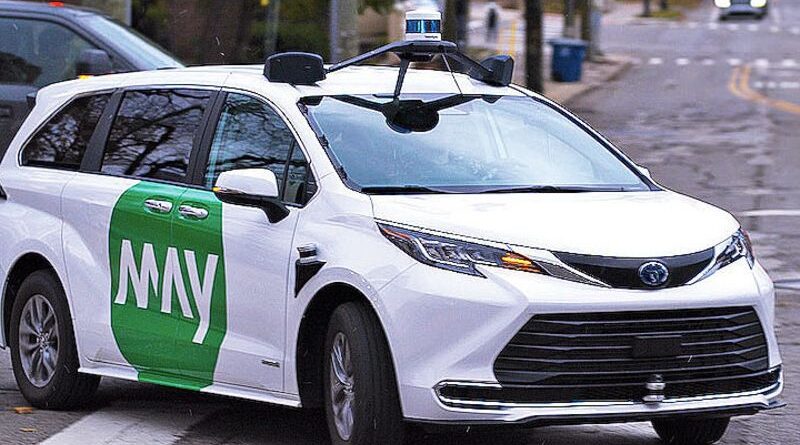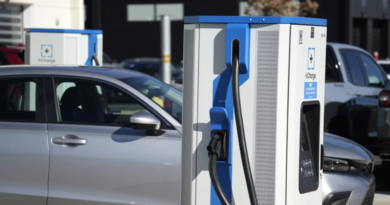Boeing bets big on Wisk, while May Mobility gets $83 million
Both on the ground and in the air, autonomous taxis remain an enticing prospect for financial investment.
Two autonomous-vehicle companies revealed substantial funding last week, with Toyota-backed May Mobility raising $83 million in a series C round that keeps the startup on pace to begin “driver-out” operations in 2023.
It will take a little longer for Wisk to launch autonomous flights, but the air taxi startup took a significant step toward that goal last week, securing $450 million in funding from Boeing.
The electric vertical takeoff and landing, or eVTOL, startup, in which both Boeing and Larry Page’s Kitty Hawk own stakes, said further, undisclosed funds were raised.
While May Mobility ostensibly has competitors in the passenger-carrying robotaxi realm, Wisk remains unlike many of its eVTOL competitors. Joby Aviation (also backed by Toyota), Lilium and Archer Aviation and Mercedes-Benz-backed Volocopter, for example, are all developing aircraft intended to be operated by human pilots.
Some of those competitors expect to begin flights as early as 2024, but for Wisk, commercial service that’s at least five years away will be worth the wait.
“With this investment, we are reconfirming our belief in Wisk’s business and the importance of their work,” Marc Allen, Boeing’s chief strategy officer, said in a written statement. “Autonomy is the key to unlocking scale across all AAM (advanced air mobility) applications, from passenger cargo and beyond. That’s why straight-to-autonomy is a core first principle.”
Boeing’s investment in Wisk is expected to advance development of the company’s sixth-generation aircraft, and further support the startup as it “enters an intensive growth phase over the next year” and “its preparations for the launch of scale manufacturing,” according to the company.
Wisk will seek certification of the sixth-generation aircraft, a regulatory milestone required before any commercial service. The company envisions beginning such service within five years of certification, and eventually conducting 14 million annual flights across 20 cities.
Wisk ranks fourth out of dozens of eVTOL companies on the latest “Advanced Air Mobility Reality Index” published in December by aerospace firm SMG Consulting, which attempts to discern which of the eVTOL startups has the stamina to navigate the certification process and enter service.
Previous funding rounds, which remain undisclosed, were also led by Boeing and Kitty Hawk through a joint venture.
In the terrestrial realm, May Mobility received $83 million in a round led by the Mirai Creation Fund II. That brings total funding for the Ann Arbor, Mich., company to date to $166 million. Returning investors include Toyota Ventures and BMW i Ventures, among others.
The funding comes amid problems in some corners of the ground-based robotaxi market. This month, self-driving shuttle company Local Motors closed, and Optimus Ride sold its intellectual property to Magna International, which also hired most of the company’s engineering team.
May Mobility pivoted away from such a shuttle model and is now focused on public deployments of its system integrated into Toyota Sienna minivans.
The latest funding allows the company to “continue to challenge that status quo of transit by reshaping the future of the AV industry,” CEO Edwin Olson said in a written statement.
Source : Autonews.com




